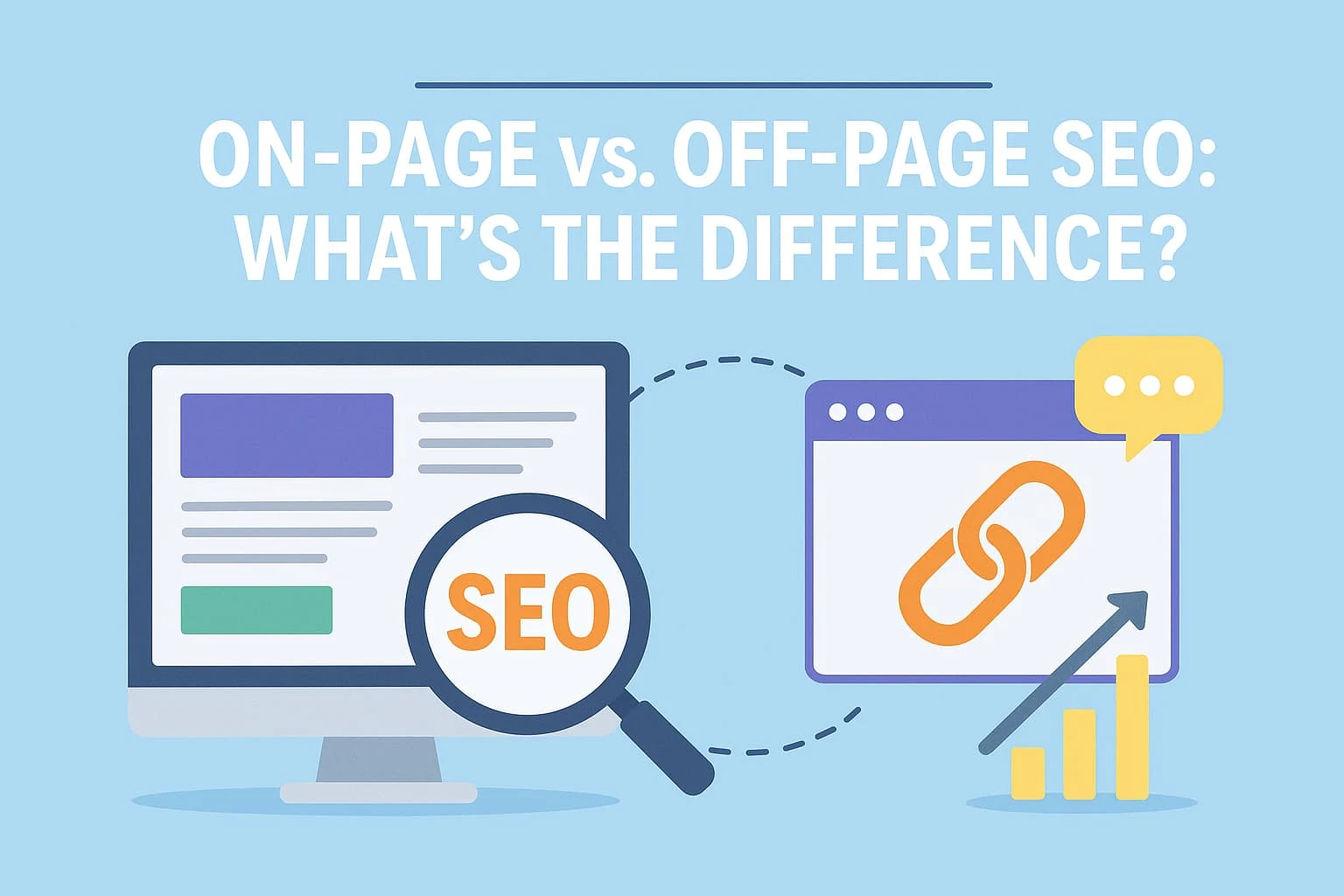What are you looking for?
THE TECH PRODUCT
THE DESIGN STUDIO
THE MEDIA HOUSE
THE MARKETING STUDIO
THE AR LAB

Understand the difference between On-Page and Off-Page SEO. Learn the core principles, key actions, and how to combine both for a winning SEO strategy in 2025.
Every marketer knows that SEO is crucial, but what happens when you have a great blog post that isn't ranking? The answer often lies in understanding the two sides of SEO: On-Page vs. Off-Page.
Think of it this way: On-page SEO is everything you do on your website to help search engines understand your content. It’s your title, your keywords, and your site's structure. Off-page SEO is everything you do away from your website to build authority and trust in the eyes of search engines. It's your backlinks and brand mentions.
While they are two different disciplines, they are two sides of the same coin. Mastering the difference and making them work together is the key to winning in the 2025 search landscape.
On-page SEO is your chance to tell search engines exactly what your page is about. It's an essential first step for any content strategy.
Off-page SEO is how you build a reputation for your website on the internet. It's what tells Google and its AI that your site is a credible, trusted source.
The true magic of SEO happens when you combine both strategies.
You can have the most well-optimized, perfectly structured article in the world (on-page), but if no other websites link to it (off-page), it will struggle to rank. Conversely, a poor-quality page can get many links, but it will still fail to hold a top position because it doesn't satisfy user intent. In 2025, both are equally critical for success.
Q: Which is more important, On-Page or Off-Page SEO?
A: Neither is more important. Think of them as two sides of the same coin. On-page SEO makes your content relevant, and off-page SEO makes your website authoritative. You need both to rank consistently in today's search landscape.
Q: Can I do my own On-Page SEO?
A: Yes. On-page SEO is entirely within your control. With the right tools and knowledge, you can optimize your content, meta tags, and site structure on your own.
Q: What is the most important Off-Page SEO task?
A: Building high-quality backlinks is the single most important off-page SEO task. Links act as votes of confidence that directly signal authority to search engines.